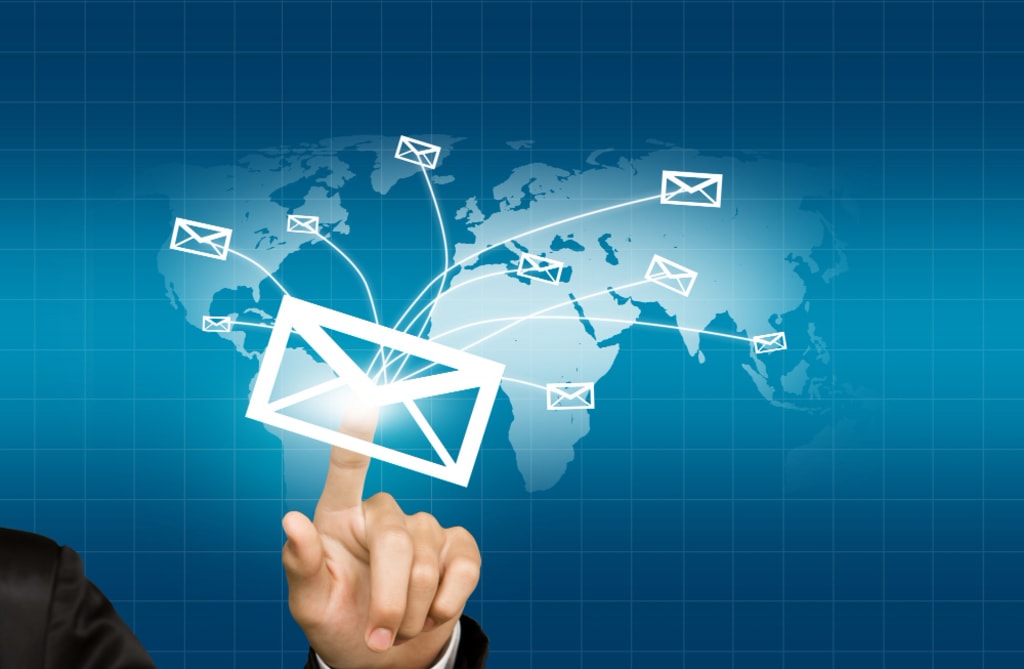The Power of Personalization in Email Marketing
Email Marketing

Introduction
In today's digital age, businesses are constantly seeking innovative ways to engage with their customers and build long-lasting relationships. One such powerful tool in the world of marketing is email marketing. However, with the increasing volume of emails flooding consumers' inboxes, it has become crucial for businesses to stand out from the crowd. This is where the power of personalization in email marketing comes into play.
What is Personalization in Email Marketing?
Personalization in email marketing refers to tailoring the content of emails to individual recipients based on their preferences, behavior, demographics, and past interactions with the brand. It goes beyond simply addressing the recipient by their name; it involves delivering relevant and targeted content that resonates with each individual subscriber.
Benefits of Personalization in Email Marketing
Increased Open Rates
By personalizing email subject lines and content, businesses can capture the attention of their subscribers. Emails that speak directly to the recipient's interests and needs have a higher chance of being opened, leading to increased engagement.
Improved Click-Through Rates
When recipients receive personalized emails that cater to their specific interests, they are more likely to click on links and calls-to-action within the email. Personalization helps drive traffic to the website or landing page, increasing the chances of conversion.
Enhanced Customer Engagement
Personalization fosters a sense of connection and relevance between the brand and the recipient. Tailoring emails based on past purchases, browsing behavior, or preferences creates a personalized experience that encourages recipients to actively engage with the brand.
Higher Conversion Rates
By delivering personalized content that matches recipients' interests, email marketing campaigns can significantly impact conversion rates. When subscribers receive offers and recommendations that align with their preferences, they are more inclined to make a purchase.
Improved Customer Loyalty
Personalization creates a bond between the brand and the customer. When subscribers feel understood and valued, they develop a sense of loyalty, leading to repeat purchases and long-term customer relationships.
Challenges and Best Practices for Personalization
Data Privacy and Security
With personalization comes the responsibility to handle customer data securely and respect their privacy. Ensure compliance with data protection regulations and implement robust security measures to safeguard customer information.
Striking the Right Balance
Finding the right balance between personalization and overwhelming recipients with excessive emails can be challenging. Avoid bombarding subscribers with too many emails and focus on delivering valuable content that genuinely enhances their experience.
A/B Testing
A/B testing is a crucial practice to fine-tune your personalization strategies. Experiment with different personalization elements, content formats, or subject lines to determine what resonates best with your audience.
Regularly Update Customer Profiles
Customer preferences and behaviors evolve over time, so it's essential to regularly update customer profiles. Gather feedback, track interactions, and encourage subscribers to provide updated information to ensure your personalization efforts remain relevant.
Conclusion
Personalization in email marketing has the power to revolutionize customer engagement and drive tangible business results. By tailoring emails to individual recipients and delivering relevant content, businesses can increase open rates, improve click-through rates, enhance customer engagement, boost conversion rates, and foster long-term customer loyalty. By following best practices, addressing challenges, and continuously optimizing strategies, businesses can harness the full potential of personalization in email marketing.
FAQs
How can personalization improve email marketing results?
Personalization improves email marketing results by capturing recipients' attention, increasing open rates, improving click-through rates, enhancing customer engagement, boosting conversion rates, and fostering customer loyalty through relevant and targeted content.
Is personalization suitable for all businesses?
Personalization is beneficial for most businesses, regardless of their size or industry. Tailoring content to individual recipients helps create a personalized experience that resonates with customers and drives better engagement and results.
What are the key challenges of implementing personalization in email marketing?
The key challenges of implementing personalization in email marketing include data privacy and security concerns, finding the right balance between personalization and email frequency, conducting effective A/B testing, and regularly updating customer profiles.
How often should I update customer profiles for effective personalization?
It is recommended to update customer profiles regularly to ensure the accuracy and relevance of personalization efforts. Encourage subscribers to provide updated information, track interactions, and gather feedback to maintain up-to-date customer profiles.
About the Creator
Rehana Atar
SEO Expert and content writer
Enjoyed the story? Support the Creator.
Subscribe for free to receive all their stories in your feed. You could also pledge your support or give them a one-off tip, letting them know you appreciate their work.






Comments
There are no comments for this story
Be the first to respond and start the conversation.